Resources
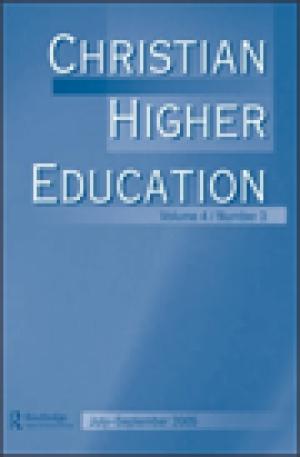
Journal Issue
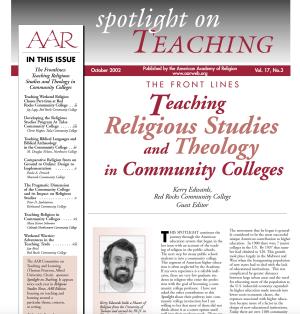
Journal issue. Full text is available online.
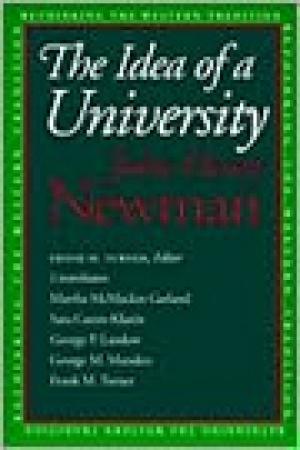
Since its publication almost 150 years ago, John Henry Cardinal Newman's The Idea of a University has had extraordinary influence on the shaping and goals of higher education. This important and accessible edition includes new essays by five leading scholars who explore the background and present day relevance of Cardinal Newman's themes, a biographical sketch of his life, questions for discussion, expanded notes, and a glossary of names. (From the Publisher)
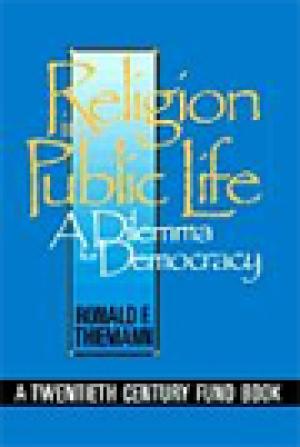
Prayer in public schools, abortion, gay and lesbian rights - these bitterly divisive issues dominate American politics today, revealing deep disagreements over basic moral values. In a highly readable account that draws on legal arguments, political theory, and philosophy, Ronald F. Thiemann explores the proper role of religious convictions in American public life. He proposes that religion can and should play an active, positive part in our society even as it maintains a fundamental commitment to pluralist, democratic values. Arguing that both increased secularism and growing religious diversity since the 1960s have fragmented commonly held values, Thiemann observes that there has been an historical ambivalence in American attitudes towards religion in public life. He proposes abandoning the idea of an absolute wall between church and state and all the conceptual framework built around that concept in interpreting the First Amendment. He returns instead to James Madison's views and the Constitutional principles of liberty, equality, and toleration. Refuting both political liberalism (as too secular) and communitarianism (as failing to meet the challenge of pluralism), Thiemann offers a new definition of liberalism that gives religions a voice in the public sphere as long as they heed the Constitutional principles of liberty, equality, and toleration or mutual respect. The American republic, Thiemann notes, is a constantly evolving experiment in constructing a pluralistic society from its many particular communities. Religion can act as a positive force in its moral renewal, by helping to shape common cultural values. All those interested in finding solutions to today's divisive political discord, in finding ways to disagree civilly in a democracy, and in exploring the extent to which religious convictions should shape the development of public policies will find that this book offers an important new direction for religion and the nation. (From the Publisher)
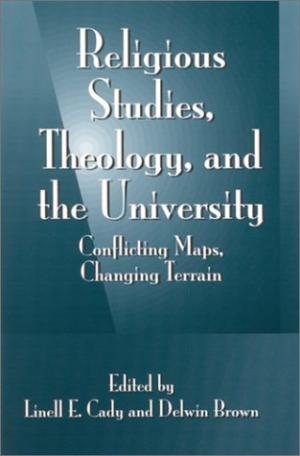
This collection explores the highly contested relationship of religious studies and theology and the place of each, if any, in secular institutions of higher education. The founding narrative of religious studies, with its sharp distinction between teaching religion and teaching about religion, grows less compelling in the face of globalization and the erosion of modernism. These essays take up the challenge of thinking through the identity and borders of religious studies and theology for our time. Reflecting a broad range of positions, the authors explore the religious/secular conceptual landscape that has dominated the modern West, and in the process address the revision of the academic study of religion and theology now underway. (From the Publisher)
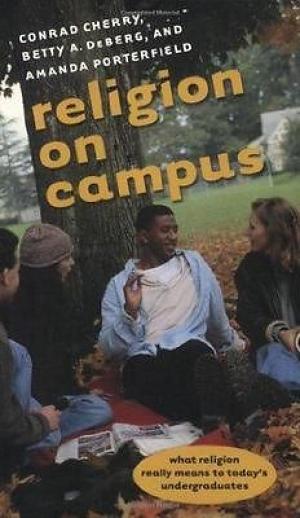
The first intensive, close-up investigation of the practice and teaching of religion at American colleges and universities, Religion on Campus is an indispensable resource for all who want to understand what religion really means to today's undergraduates. To explore firsthand how college students understand, practice, and learn about religion, the authors visited four very different U.S. campuses: a Roman Catholic university in the East, a state university in the West, a historically black university in the South, and a Lutheran liberal arts college in the North. They interviewed students, faculty members, and administrators; attended classes; participated in worship services; observed prayer and Bible study groups; and surveyed the general ethos of each campus. The resulting study makes fascinating and important reading for anyone--including students, parents, teachers, administrators, clergy, and scholars--concerned with the future of young Americans. Challenging theories of the secularization of higher education and the decline of religion on campus, this book reveals that both the practice and the study of religion are thriving, nourished by a campus culture of diversity, tolerance, and choice.(From the Publisher)
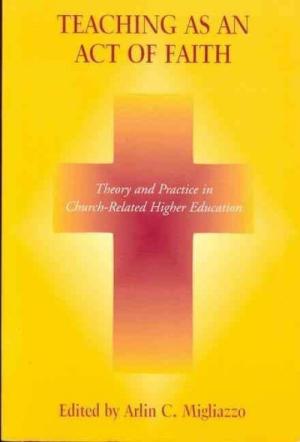
Interest in church-related higher education has increased greatly in recent years. Teaching as an Act of Faith is a practical guidebook on strategies to incarnate mission and epitomize theological and theoretical reflection in the classroom. In original essays, distinguished practitioners from fourteen liberal arts disciplines and Roman Catholic, Wesleyan, Anabaptist, Lutheran, and Reformed traditions demonstrate how they have been able link religious values more directly to their teaching. (From the Publisher)
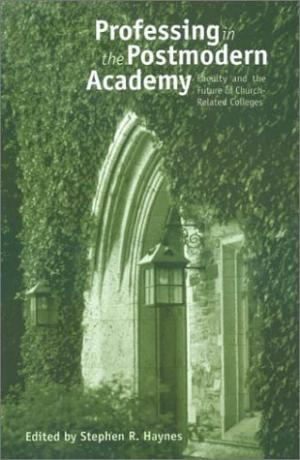
This work examines the landscape of religiously affiliated higher education in America from the perspective of faculty members critically committed to the future of church-related institutions. The book includes articles on a variety of topics from members of the Rhodes Consultation on the Future of the Church-Related College, a project that has involved ninety church-related institutions since 1996. (From the Publisher)

From the Publisher "Those who ponder these pages will be renewed to love God with all their minds, to pursue truth, and to live faithfully."--David S. Dockery, Union University What purpose do purely intellectual pursuits have in the lives of Christians? Why should Christians study subjects that have little bearing on their future careers and ministry? In a style reminiscent of the work of Arthur Holmes and Harry Blamires, veteran professor of philosophy Clifford Williams addresses these issues and more in this succinct and accessible examination of the life of the mind. Christians cultivating the life of the mind actively pursue situations and discussions that require experimentation, reflection, and perseverance. They are interested in the acquisition of knowledge that is both unrelated and directly related to their faith. Williams answers common Christian objections to such activities, describes the virtues of the person who engages in the life of the mind, and asserts that the life of the mind is justifiably a Christian calling. The Life of the Mind, the newest addition to the RenewedMinds imprint, is directed toward students contemplating the importance of college and intellectual activity in general, but it will be enjoyed by all committed to developing a Christian mind.